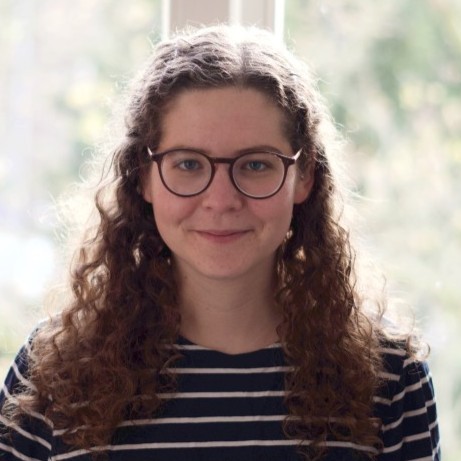Meet FEMS Research and Training grantee Femke van Hout
29-03-23
Research and Training Grants are meant to assist early career scientists in pursuing research and training at a European host institution in another country than their own country of residence.
 Femke van Hout: Radboud University Medical Center, Nijmegen, The Netherlands
Femke van Hout: Radboud University Medical Center, Nijmegen, The Netherlands
Host supervisor and host laboratory: Dr Anniina Vihervaara, KTH Royal Institute of Technology, Sweden
Dates: 1 September to 15 October 2022
FEMS Member Society Membership: Royal Netherlands Society for Microbiology
I am a PhD candidate studying the transcriptional response of the Aedes aegypti mosquito to virus infections. This mosquito is not just a model organism, but the actual vector of clinically relevant viruses such as Zika, Dengue and Chikungunya virus. Yet, their immune response to infections is very poorly characterized. In the coming years, I aim to obtain a full picture of the different levels of regulation that together constitute the mosquito response to infection and therefore I am interested in the use omics approaches. With my background in biology, I aim to further develop my interest in data analysis and I wish to further develop my analysis skills of big sequencing data sets.
Aedes aegypti mosquitoes transmit arthropod-borne (arbo)viruses, such as Chikungua and dengue virus, which can cause severe disease in humans. The antiviral immune response of the mosquito critically controls virus replication and thereby ultimately determines virus transmission to humans. However, very little is known about transcriptional responses in mosquito immunity. At present, such research in mosquitoes is limited by technological restraints. The currently available RNA sequencing (RNA-seq) methods capture the total, mature RNA levels of cells, which are biased by RNA stability, and accordingly pick up only the most robust and stable changes in gene expression. Highly dynamic changes of gene expression remain undetectable by these conventional RNA-seq methods and would instead require methods with greater sensitivity and resolution. In my training vist, I have established new methods for such characterization in mosquito cells.
Despite the relevance of the Aedes aegypti mosquito to human health, fundamental knowledge on its transcriptional regulation and responses to virus infections is currently lacking. The proposed study aims to lay the foundations for this new research direction, combining state-of-the-art techniques from fundamental molecular biology with medically relevant mosquito models for virus transmission. With the funded training visit I optimized this technique for mosquito samples, which will be crucial for plenty of microbiological insights to follow. The FEMS Research and Training Grant thereby enabled me to gain new skills and to combine my research fields of interest: molecular biology and microbiology.
My main aim to establish this technique for mosquito samples was succeeded! Moreover, the unique opportunity to learn this technique helped me to embark in a new exciting field of research. Together with the mosquito expertise from my home laboratory, this will enable me to further combine my two scientific interests of molecular biology and microbiology into my PhD project. Moreover, the research stay will extend my international network, scientific independence and personal development. My training visit to another international group was a very enriching experience! The FEMS Research and Training Grant enabled me to expand my skill set, as well as my network and collaborations. In multiple ways, this visit will therefore be of great benefit during my PhD and later on in my career.
Before applying for the training visit, I mainly knew FEMS through the national organization (in the Netherlands: Koninklijke Nederlandse Vereniging voor Microbiologie) because they organize a national virology symposium each year, which I always enjoy to attend.
I enjoy attending the Dutch Annual Virology Symposium (organized by the Dutch KNVM) each year. I believe such conferences offer unique opportunities for young researchers to present their work and connect to other researchers outside their own institute. Moreover, I believe FEMS can significantly contribute the career and development of young researchers through their FEMS Research and Training Grant. For me this was definitely an outstanding opportunity to expand my PhD research and develop myself. I believe similar grants later on in my career, for example during a postdoc, or grants to organize a conference myself as well would be of great benefit as well.”
–
We use income from the FEMS Journals to fund grants, awards, and projects, and to support our knowledge sharing events and initiatives. Consider publishing your research with our journals to help the global microbiology community.
